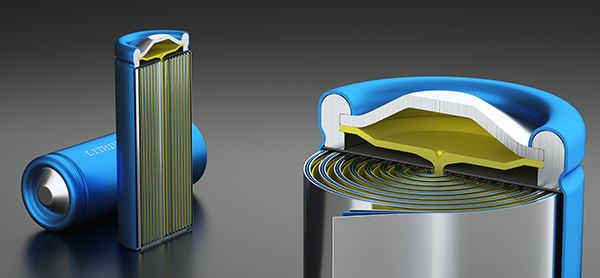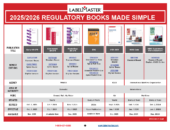Last week DOT PHMSA hosted the first Lithium Battery Air Safety Advisory Committee meeting at DOT Headquarters in Washington, D.C., and I had the pleasure of the attending the meeting alongside Labelmaster Services V.P. of Consulting, Pia Jala.
Lithium cell and battery production throughout the world continues to grow at an astonishing rate due to consumer demand, and it’s imperative that transportation safety is maintained throughout all levels of the supply chain. The Committee, established in May 2019 in accordance with the FAA Reauthorization Act of 2018, consists of 20 appointed individuals who represent some of the largest stakeholders in the industry.
The Committee and its goals
The Committee is being led by Designated Federal Officer Duane Pfund from PHMSA, Alternate Designated Federal Officer Dick Hill from the FAA, and Chairman Bob Brown, V.P. of the Coalition of Airline Pilots Associations. You can find a complete list of the Committee members and their biographies here.
The Committee is ultimately responsible for developing a report for the Secretary of Transportation and Congress on the steps the private sector and regulatory authorities can take to improve the safe transportation of lithium batteries by air, and some of the key topics the Committee are expected to address are:
- Facilitating communication amongst manufactures of lithium batteries and products containing lithium batteries, air carriers, and the Federal government
- Discussing the effectiveness and the economic and social impacts of lithium battery transportation regulations
- Providing the Secretary with information regarding new technologies and transportation safety practices
- Providing a forum to discuss Departmental activities related to lithium battery transportation safety
- Advising and recommending activities to improve the global enforcement of air transportation of lithium batteries, and the effectiveness of those regulations
- Providing a forum for feedback on potential United States positions to be taken in international forums
- Reviewing methods to decrease the risk posed by undeclared hazardous materials
Four concentrated sub-committees
From the beginning of day one it was clear that all of the Committee members were enthusiastic about their appointments and roles on this Committee. A significant amount of existing data was presented for review and evaluation over the two days, and the group stayed focused and intent on prioritizing in order to accomplish their goals.
The meeting concluded with the Committee choosing to initially establish four subcommittees, concentrating efforts on:
- Regulations
- Supply Chain Safety and Integrity
- Data Collection and Analysis, and
- Hazard/Risk Mitigation.
The subcommittee work is expected to commence in the very near future, and the Committee is tentatively scheduled to regroup for their second public meeting September 15 – 16, 2020. More information will be posted on the PHMSA website as it becomes available.
The Lithium Battery Air Safety Advisory Committee will help lead safety improvements in the transportation of lithium batteries, and Labelmaster is fully committed to to keeping a close eye on the progress of the Committee in order to keep our customers informed and up to date.
Labelmaster is a full-service provider of goods and services for the Hazardous Materials and Dangerous Goods professional, shippers, transport operators, and EH&S providers. See our full line of solutions at labelmaster.com or call and speak with our customer service staff at (800) 621-5808. Regulatory questions can be directed to Regs@labelmaster.com.




Three things I’d like to Committee to address, although I’m not sure that they will, nor what priority they should be given:
1. Preventing counterfeit batteries from places like China. It doesn’t help to require copies of test reports or battery summaries or anything like that if a significant number of them will be fakes. Just because I have a document (faked) for a counterfeit battery doesn’t make it any safer.
2. Awareness that Lithium Batteries are indeed HazMat, and only non-regulated when transported in personal vehicles outside of commerce. Having been involved in the defense of a couple shippers of undeclared Lithium Batteries, I know the first thing I had to do was explain how they could possibly be regulated by DOT when anyone can buy them in a drugstore or grocery store. Every employee at every commercial enterprise is a member of the ‘general public’, and the general public believes that if you can buy it in a grocery store and take it home legally, it cannot be HazMat. Until that perception is updated, undeclared shipments of Lithium Batteries will continue.
3. Global Harmonization and Simplicity. Even most of those of us who make part of our living training (or educating or informing) about Lithium Battery transport requirements would appreciate fewer permutations in the way they can be classified, packaged, and communicated. And we also wish that different DG regulations were a bit more consistent about what is a “small” battery, et al. Yes, the more complex and varied the regulations are, the more companies need my services as a DG trainer, but also the LESS likely that compliance (and thus safety) will be achieved with every shipment. Keeping it simple and consistent will make it easier for shippers to be safe.